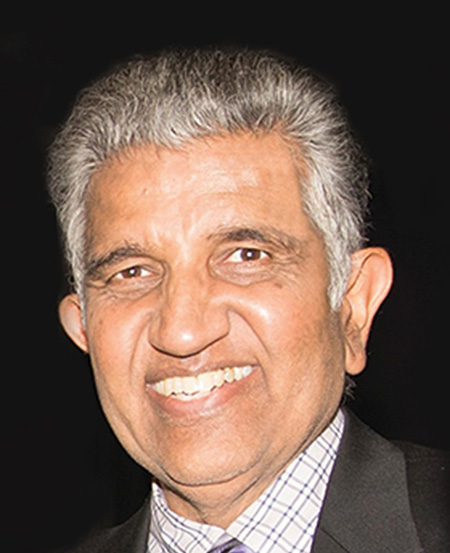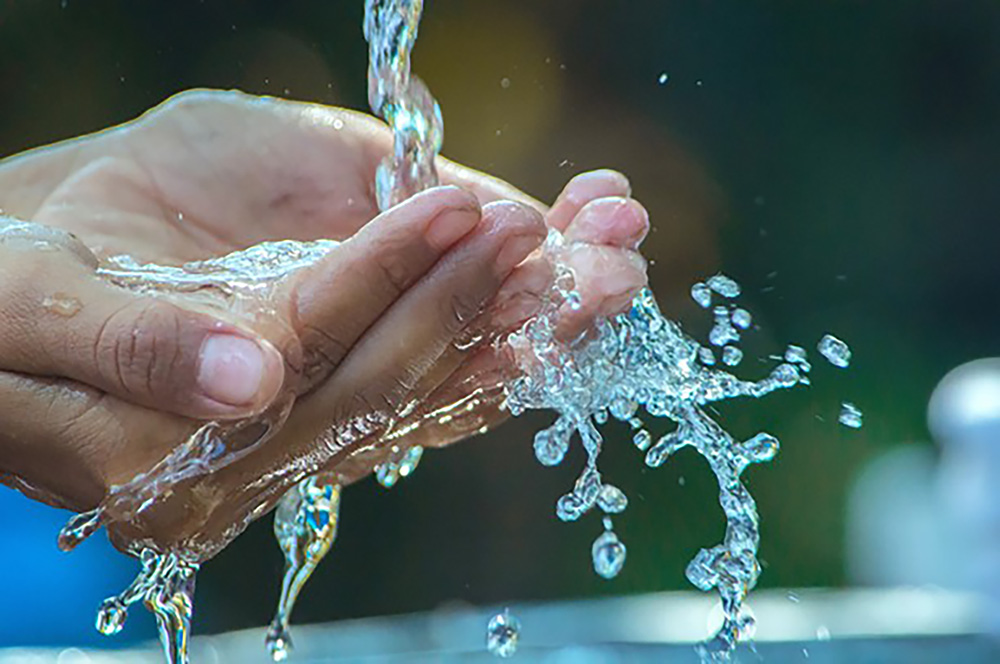Exclusive interview: H2O Global News Editor, Siôn Geschwindt, spoke with engineer and water expert Dr. Raj Rajaram, about his unique story, lessons learnt from over 40 years in the industry, and his hopes for the future.
Dr. Raj Rajaram is a geotechnical and environmental engineer who holds a Ph.D. from the University of Wisconsin, and has 40 years of experience in environmental management. He opened and managed the operations of Tetra Tech India Limited (TTIL) in Delhi from 1997 to 2002, and has authored over 40 Technical papers and published two books.
Dr. Rajaram is currently a partner at IIG Global, a firm he co-founded in 2013 dealing with technology transfer, energy and municipal infrastructure design and construction. He is also President of Pratham Chicago, a non-profit that provides education to children in the slums of Mumbai.
We caught up with Dr. Rajaram from his home in Chicago to find out more.

Q: Why did you choose to dedicate so much of your life to working for water?
I grew up in southern India and shared a house with twenty of my cousins. We only had two hours of water in the morning and after that the municipality shut off the supply.
The elders in the family would wake up every day at 4am to collect the water in a concrete tank. We each had one bucket of water or less a day, for everything from brushing teeth to showering.
As you can imagine, from a young age I learnt not to waste a single drop! We never thought that we had a lack of water, that was just the way it was.
After I finished my undergrad in India, I came to the U.S. to do my Masters in South Dakota and then my PhD at the University of Wisconsin.
In Wisconsin water is everywhere and everyone takes it for granted. When I moved to Chicago, I was really struck by the inequalities in water access both in quality and quantity between the U.S. and India.
This is why for the past two decades I have made it my mission to bring people together and help bring safe, quality water to all.
In 2004, myself and a group of friends in Chicago started a group called the India Development Coalition of America, to work on sustainable development issues in the rural areas and urban slums of India. We wanted to give everyone the chance to access quality education, water and sanitation.
Q: What are some of the lessons that you have learnt over the course of your career in the water industry?
The first lesson, and one which I learnt as a young boy – is use water wisely.
Secondly, that contamination of ground and surface water has long term impacts on water access and quality, and that prevention is the best cure.
I learnt this lesson working for 11 years on cleaning up contaminated ‘superfund sites’ throughout the US and India. The water at these sites has been polluted by industrial wastes and chemicals and I witnessed first-hand the impact this has on water security and access.
Thirdly, it’s better to do the right thing now or you will pay the price later – don’t cut corners on proper water management – you will pay more in health and clean-up costs.
And last but not least, do whatever you can do in your power to educate people on wise use of water and encourage those in power to take action.
Q: The international community have made a number of commitments to improve water access and quality, including SDG 6. However, do you think we are making real progress on the ground to achieve these targets?
I think we have seen huge technological advancements in the water industry and a number of positive policy steps taken.
However, the whole attitude to water needs to change. Only then can the SDGs be met. We just approach water as a commodity that can be wasted, if you can afford it – not thinking about those who can’t.
Look at Israel, they have developed a range of technologies, smart policies, and a preventative maintenance policy to keep infrastructure modern to use water wisely, why? Because there was a need.
The reality is that many parts of the world don’t invest properly in water and they don’t value it enough.
We really need to create global policies that combat water wastage and contamination.
The technology to do this is available, and in the parts of the world where it is not affordable, world leaders should step up to make financing available.
Fundamentally there are three ways we can improve the SDGs implementation: better policies, better implementation and enforcement of those policies, and citizen awareness programmes from a very young age.
These actions must start at the community level, all the way up to the national and international arenas.
Q: What is your vision for the future of water?
I think we need to start looking more and more at the food-water-energy nexus – the relationships between these resources and how we can better manage them holistically.
Currently many large industries use huge amounts of water and don’t leave enough for domestic consumption. We need to start thinking about how we can use water more wisely in these cases.
For instance, agriculture could be using a significant proportion of treated wastewater for crops instead of potable water that should go for drinking purposes first.
However, in my opinion, until we have addressed the inequities in water distribution globally, we cannot say we have truly overcome the global water crisis.
We need to make it an international priority to provide the poor of the world with access to fresh water otherwise we will fail on all the other SDGs. Water is life and it’s time we started treating it that way.
Do you have an article that you would like to share? Submit your article here or keep up with the latest news from the water industry and wastewater industry by subscribing to our weekly newsletter.







